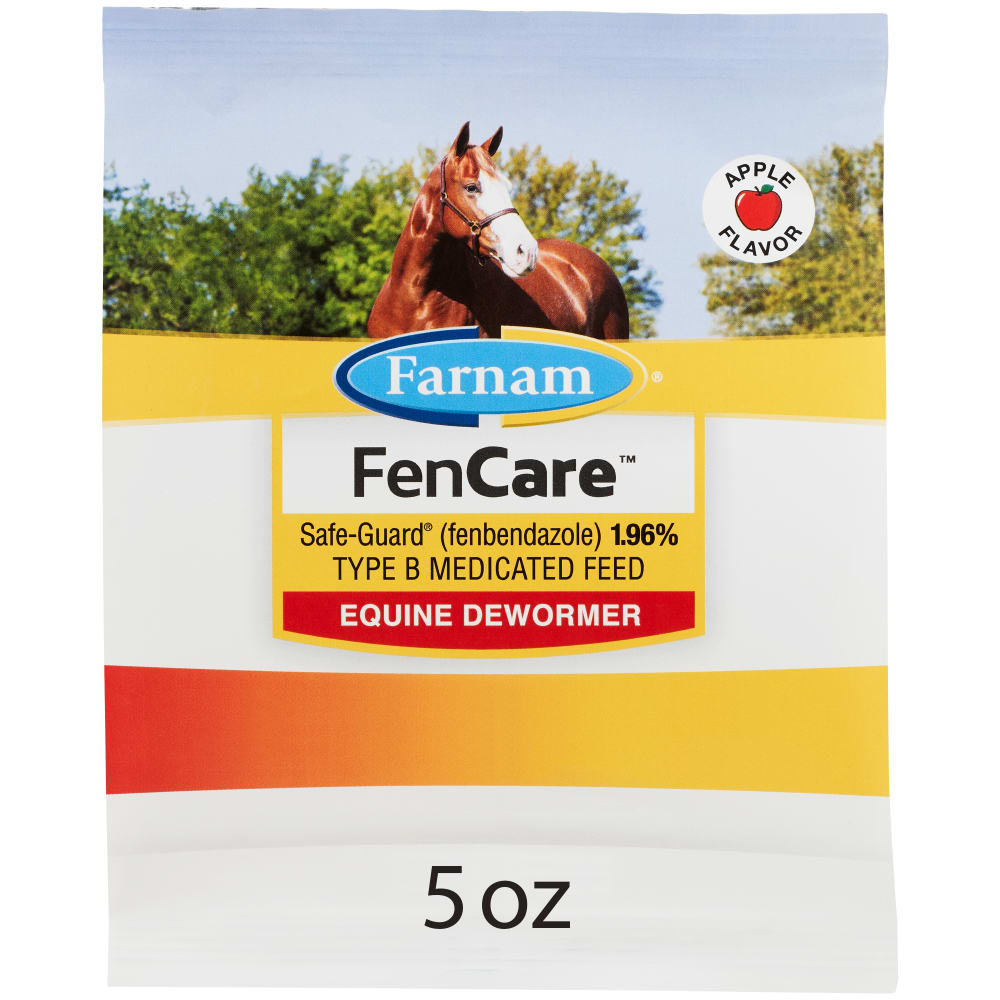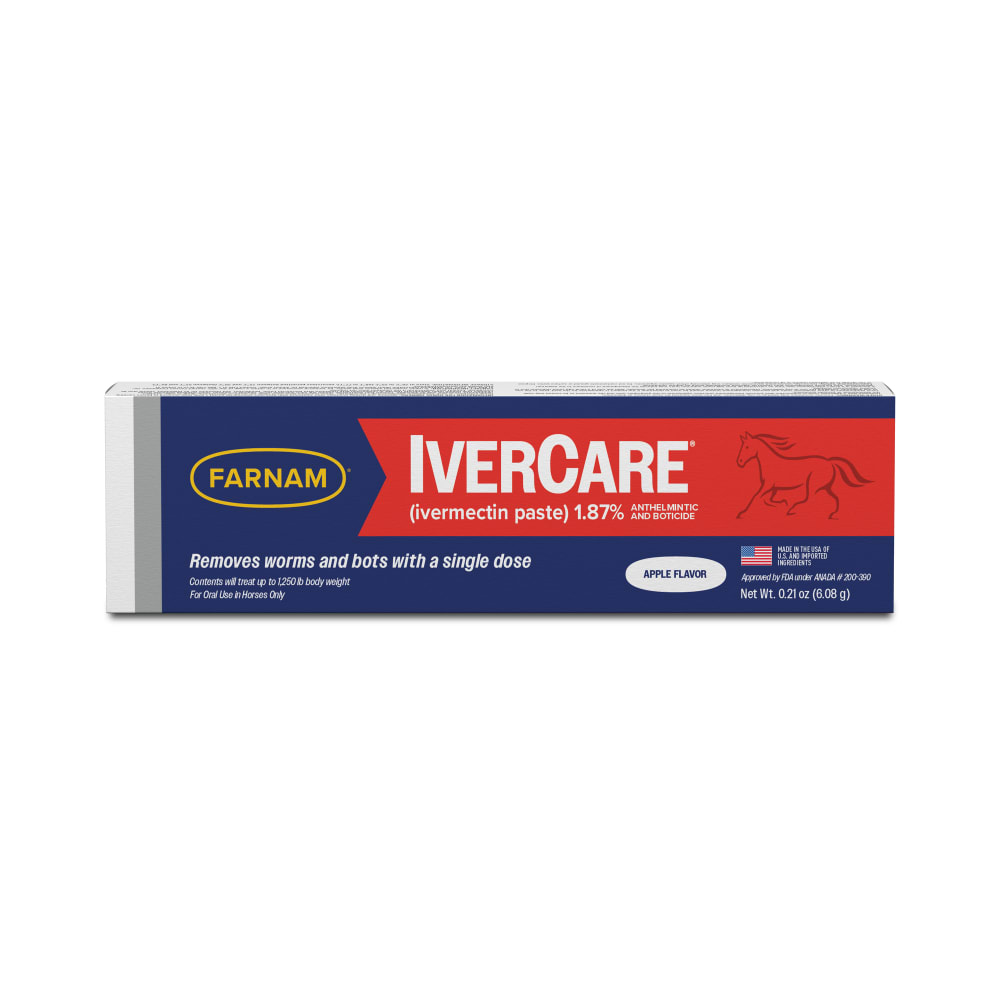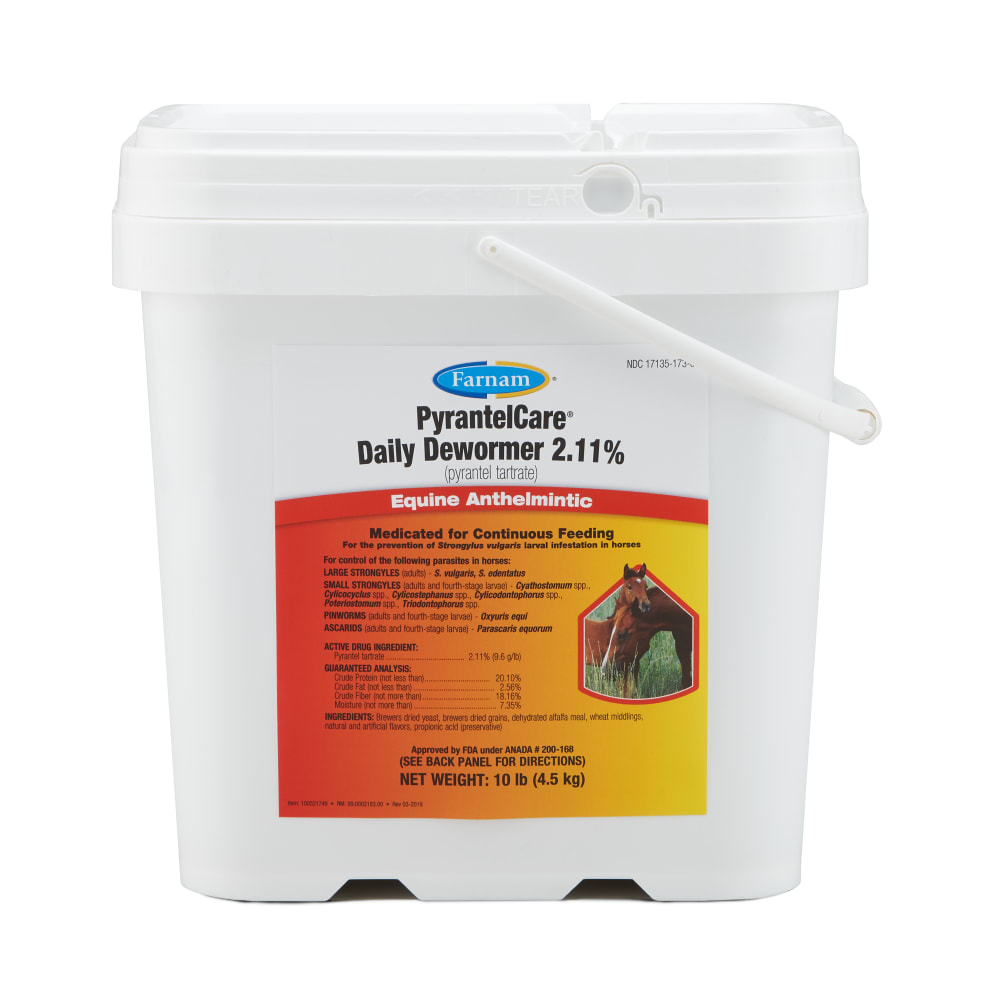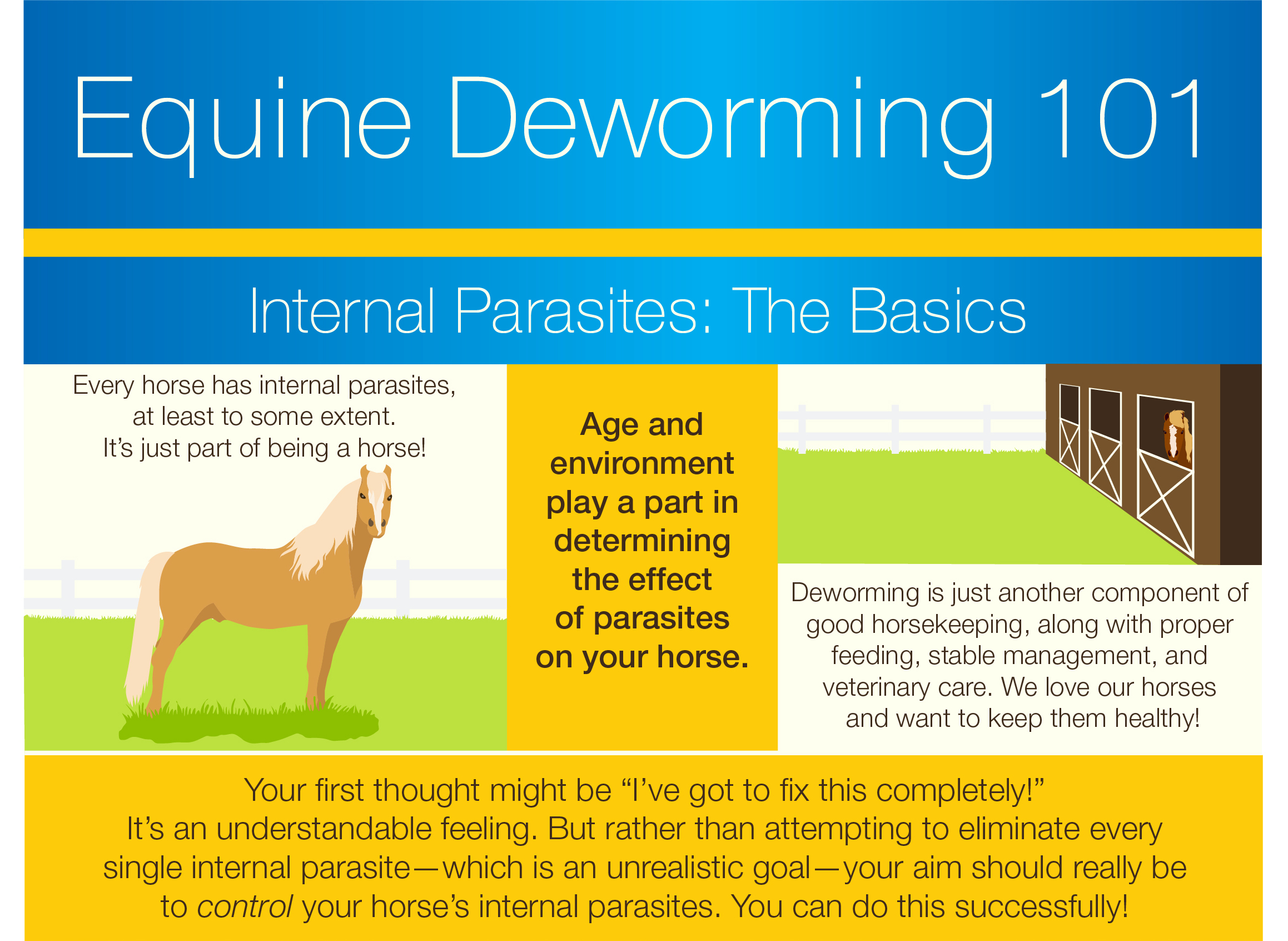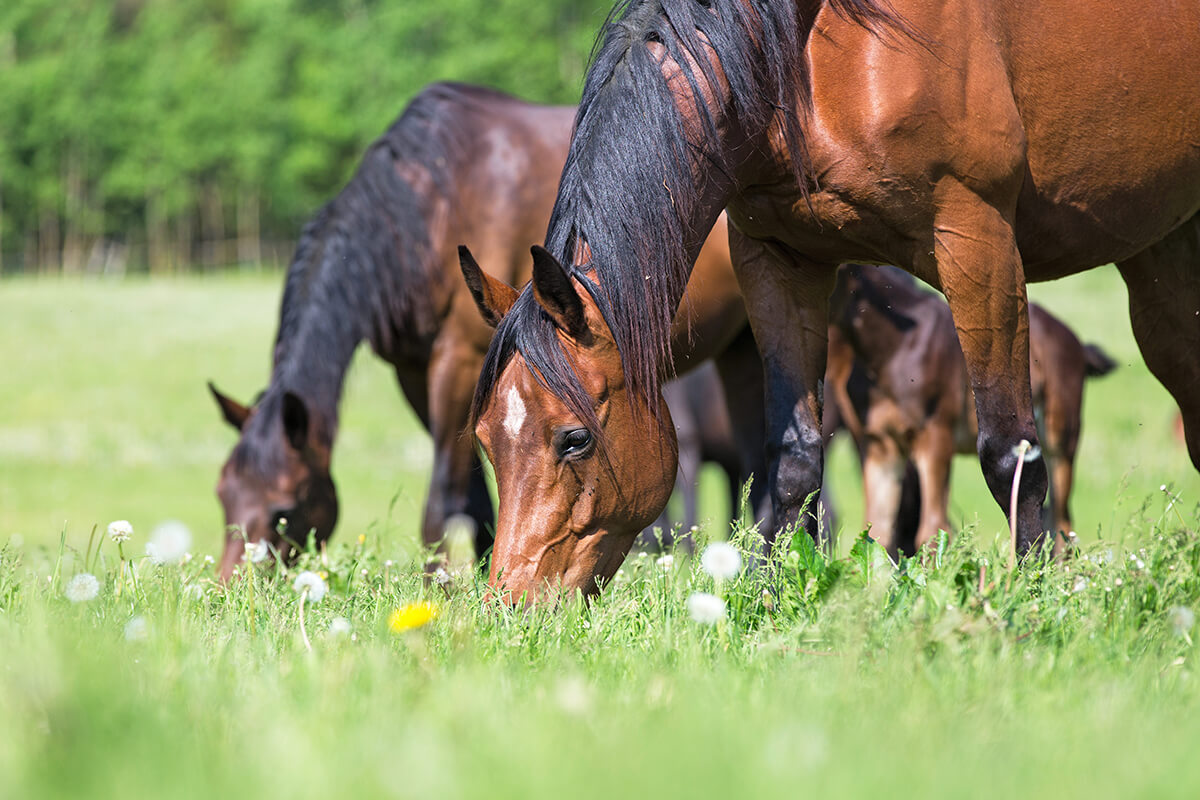Drug-Resistant Parasites 101
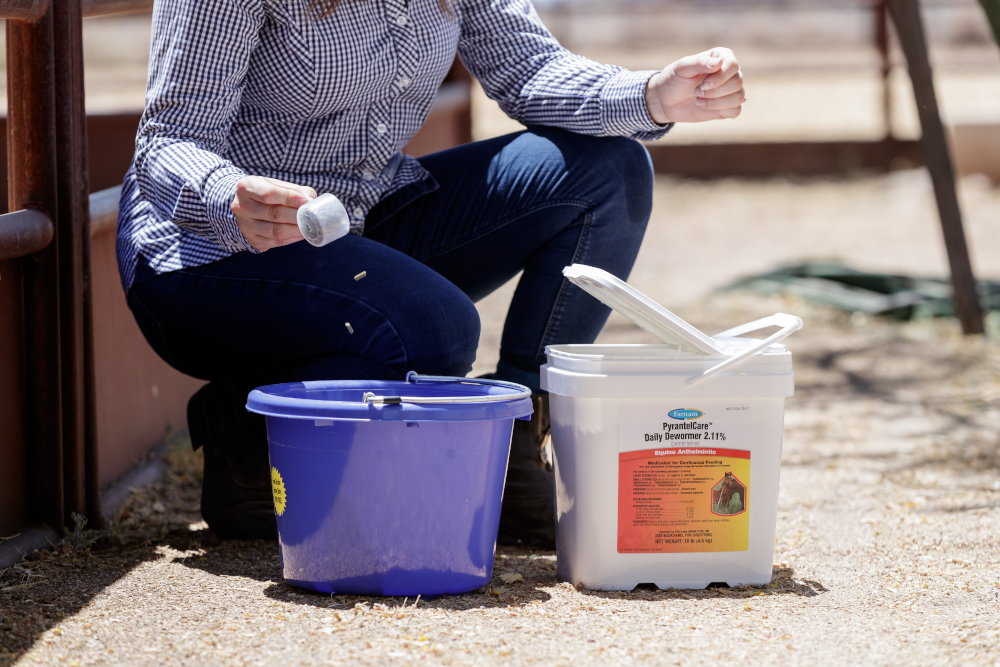
If you've been around horses for a while, you're probably aware of the concept of equine parasite resistance, but maybe you're not completely clear on what it means. A solid understanding of parasite resistance is helpful, as it's an important equine health issue that may influence your choice of deworming products and scheduling. Dr. Martin Nielsen, DVM, PhD, Dipl. ACVM, of the Gluck Equine Research Center, University of Kentucky, has provided some guidance and his professional opinion on the topic.
Clarifying the terminology
As Dr. Nielsen points out, the term “parasite resistance" itself requires some definition. "The term 'parasite resistance' can actually be confusing because it can mean two different things," he says. “It can refer to horses being resistant (or immune) to parasite infection and it can refer to parasites becoming drug-resistant." This article will focus exclusively on the second meaning; the problem of parasites themselves becoming resistant to anthelmintics (deworming products).
A genetic dilemma
But how does parasite resistance happen? If a deworming product is targeted to eliminate specific parasites from the horse, how does a population of parasites become insusceptible to treatment? The answer lies in the genetics of the parasites.
“Drug resistance is multigenic, which means that there are many different genes involved," explains Dr. Nielsen. “Whenever worms are treated with deworming drugs, a few will always survive the treatment because they have certain genes that make them less vulnerable to the treatment." Once a deworming product is used, the remaining parasite population consists of a higher percentage of individuals with drug-resistant tendencies. This increases the likelihood of resistant parasites reproducing with individuals that carry similar traits. “When they mate, they are more likely to mate with a worm that also carries some of these same genes, which would render their offspring more likely to also be drug-resistant," says Dr. Nielsen. “So . . . by one change of generation, the amount of resistance genes in the population has increased markedly, and the parasite population is now one step closer to becoming drug-resistant." Repeated dewormings on a fixed schedule tend to speed up the problem.
Multifaceted genetics
Dr. Nielsen explains that the science behind resistance is complex because of the various genetic mechanisms for different drugs and different parasites. “Most of these genes have not even been identified yet, and the few that have been identified follow a mix of different modes of inheritance. Some are recessive, others dominant, and some are co-dominant," he says. This makes it impossible to precisely gauge how resistant the next generation will be. Adding to the complexity is the way the genes are controlled, whether or not their presence shows an effect. “So it is not just a matter of whether a gene is present or absent, but also whether that gene gets upregulated and expressed," notes Dr. Nielsen.
Lasting parasite resistance
Part of the reason parasite drug resistance is so challenging is because it is permanent. Dr. Nielsen explains that after parasite populations become resistant to a particular dewormer, that drug simply fails to affect them in the future. “Once resistance has developed, there is no value in continuing to use that anthelmintic," he says. “My colleague, the legendary Dr. Gene Lyons, once did a classic study where he identified drug resistance in a population of equine cyathostomins (small strongyles). He then left that herd untreated for 22 years. When he went back and tested again after the 22 years, the worms were just as resistant as before. So, once resistance develops it never goes away."
Treating, not defeating, the problem
Because of these factors, the philosophy of the classic deworming schedule from the 1960s is no longer as effective. These plans focus on rotating among various classes of dewormers on a “one-size-fits-all" basis, the thought being that if one class of drug fails to eliminate some parasites, the next one might. The wildcard in this method has proven to be resistance, exacerbated by the rotating schedule itself.
Equine veterinarians now recommend controlling rather than seeking to eliminate parasite populations, and this is done by testing each horse and then selectively treating them with dewormers based on their individual needs. Parasite eradication is now seen as not only impractical but unnecessary. “There will always be a worm population on any farm, and that's how it is supposed to be," notes Dr. Nielsen. “The point is just to reduce deworming intensity to delay further development of drug resistance."
Decelerating resistance
Your equine veterinarian can help you with the tools needed to create a deworming program that works to slow resistance as much as possible. Modern targeted deworming programs are effective and highly important in the quest to delay the resistance issue, both on your farm and worldwide.
In the long term, however, the problem may become even more challenging. There are three chemical classes of equine dewormers currently in use in the United States, all of which have been in use for years and therefore parasite populations have had time to develop resistance. And without any new anthelmintics on the horizon, resistance may increase going forward.
While no nationwide resistance study has yet been performed, Dr. Nielsen believes that the problem is on the rise. “I feel like we have already lost most of anthelmintic drug classes, and we may be at a stage where it is too late to avoid total drug failure," he says. “We essentially only have one class left for small strongyles, and even that one is now failing. And we have widespread resistance to moxidectin and ivermectin in ascarids as well," he adds, noting an increase in reports of ascarids being resistant to the two other drug classes, as well as several reports of drug resistance in pinworms. “So the clock is ticking and the time is running out," Dr. Nielsen says. “We may be able to squeeze a few more years out of some of the remaining products, but definitely not decades."
The good news is that, in the meantime, there are multiple steps you can take to help slow the process of parasites becoming drug-resistant on your farm. In addition to a veterinarian-assisted targeted deworming program, you can:
- practice good pasture maintenance, including routine manure removal
- avoid overgrazing pastures
- avoid spreading manure on pastures that are currently being grazed
With these tools, you and your equine veterinarian can work to keep parasite drug resistance to a minimum in your herd.
Life with Horses Newsletter
Sign up now to stay connected with free helpful horse care tips, product updates, and special offers.

